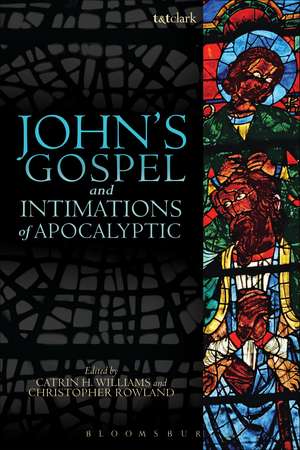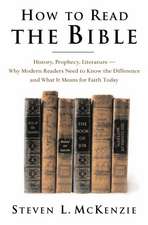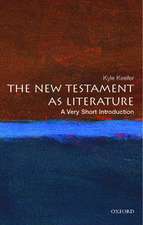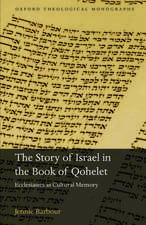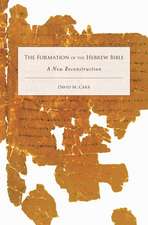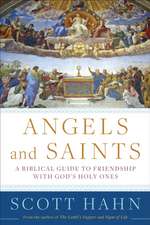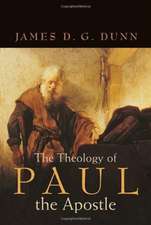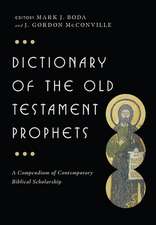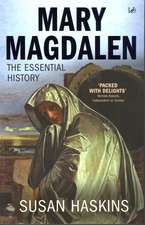John's Gospel and Intimations of Apocalyptic
Editat de Dr. Catrin H. Williams, Christopher Rowlanden Limba Engleză Paperback – 20 noi 2013
| Toate formatele și edițiile | Preț | Express |
|---|---|---|
| Paperback (1) | 221.67 lei 6-8 săpt. | |
| Bloomsbury Publishing – 20 noi 2013 | 221.67 lei 6-8 săpt. | |
| Hardback (1) | 776.24 lei 6-8 săpt. | |
| Bloomsbury Publishing – 20 noi 2013 | 776.24 lei 6-8 săpt. |
Preț: 221.67 lei
Nou
Puncte Express: 333
Preț estimativ în valută:
42.42€ • 46.06$ • 35.63£
42.42€ • 46.06$ • 35.63£
Carte tipărită la comandă
Livrare economică 22 aprilie-06 mai
Preluare comenzi: 021 569.72.76
Specificații
ISBN-13: 9780567119100
ISBN-10: 0567119106
Pagini: 344
Dimensiuni: 156 x 234 x 25 mm
Greutate: 0.54 kg
Editura: Bloomsbury Publishing
Colecția T&T Clark
Locul publicării:London, United Kingdom
ISBN-10: 0567119106
Pagini: 344
Dimensiuni: 156 x 234 x 25 mm
Greutate: 0.54 kg
Editura: Bloomsbury Publishing
Colecția T&T Clark
Locul publicării:London, United Kingdom
Caracteristici
The first extended discussion of John's use of Jewish apocalyptic
Notă biografică
Catrin H. Williams is Senior Lecturer in Biblical Studies at the University of Wales Trinity St David, UK. Christopher Rowland is Professor of the Exegesis of Holy Scripture at Queen's College, University of Oxford, UK.
Cuprins
Introduction - Christopher Rowland and Catrin H Williams PART I: INTIMATIONS OF APOCALYPTIC1. Intimations of Apocalyptic: Looking Back and Looking Forward - John Ashton, University of Oxford, UK 2. John and the Jewish Apocalypses: Rethinking the Genre of John's Gospel - Benjamin Reynold, Tyndale College, Canada 3. From the Apocalypse of John to the Johannine 'Apocalypse in Reverse': Intimations of Apocalyptic and the Quest for a Relationship - Ian Boxall, Catholic University of America, USA 4. God's Dwelling on Earth: 'Shekhina-Theology' in Revelation 21 and in the Gospel of John - Jörg Frey, University of Zurich, Switzerland 5. Unveiling Revelation: The Spirit-Paraclete and Apocalyptic Disclosure in the Gospel of John - Catrin H Williams, University of Wales Trinity St David, UK6. 'Intimations of Apocalyptic': The Perspective of the History of Interpretation - Christopher Rowland, University of Oxford, UK PART II: THE GOSPEL OF JOHN AND ITS APOCALYPTIC MILIEU: SATAN AND THE RULER OF THIS WORLD7. Why are the Heavens Closed? The Johannine Revelation of the Father in the Catholic-Gnostic Debate - April D DeConick, Rice University, USA8. The Ruler of the World, Antichrists and Pseudo-Prophets: Johannine Variations on an Apocalyptic Motif - Jutta Leonhardt-Balzer, University of Aberdeen, UK9. Evil in Johannine and Apocalyptic Perspective: Petition for Protection in John 17 - Loren T. Stuckenbruck, Ludwig-Maximilians University Munich, Germany PART III: JOHN AND APOCALYPTIC: TEXT AND READERS10. Text and Authority in John and Apocalyptic - Judith M Lieu, University of Cambridge, UK 11. The Reader as Apocalyptist in the Gospel of John - Robert G. Hall, Hampden-Sydney College, USA 12. Apocalyptic Mystagogy: Rebirth-from-above in the Reception of John's Gospel - Robin Griffith-Jones, King's College London, UK Epilogue - Adela Yarbro Collins, Yale Divinity School, USAIndex
Recenzii
These essays help redefine the categories with which we approach apocalyptic writings and John's Gospel. Instead of limiting the comparison to eschatology, they propose new ways to consider what each type of literature helps us see in the other. The result is not a new consensus, but a promising series of leads, which invite discussion around questions of how the hidden purposes of God are revealed.
A worthy tribute to the eminent Johannine scholar, John Ashton.
The Fourth Gospel has a way of stopping readers in their tracks, making us question what we thought we knew, turning upside down what we took for granted. That happens to characters in its story, also-and thus, in an odd way, we find ourselves drawn into that story. Two decades ago, John Ashton did something rather similar to scholarship about the Fourth Gospel. In this book he and a goodly company of colleagues have done it again.
In his book Understanding the Fourth Gospel John Ashton gave an outstanding presentation of modern research on the Gospel of John. He also gave fruitful pointers for future research, as was seen at a symposium where he and other distinguished scholars explored further his description of John's Gospel as "an apocalypse - in reverse, upside down, inside out." Central themes discussed were the concept of revelation, the understanding of evil, the Christological concept of Jesus as God's filial Agent, and how apocalyptic motifs find their proleptic fulfillment in Jesus' death and resurrection. It is fortunate, indeed, that these seminal contributions now are made available in book form!
This is the book I and many others have been waiting for, since the Gospel of John is not an obvious and immediate choice as an 'apocalyptic Gospel'. This much needed book discusses the heuristically important links between apocalyptic and John's Gospel, with an openness for the possibility of 'intimations of apocalyptic' in the Gospel. The different perspectives from which these relationships are reconsidered, illuminate the meaning and margins of apocalyptic within the Johannine context, leading to new and challenging interpretations of the Johannine material. This is certainly a book that will leave its impact on Johannine studies.
A worthy tribute to the eminent Johannine scholar, John Ashton.
The Fourth Gospel has a way of stopping readers in their tracks, making us question what we thought we knew, turning upside down what we took for granted. That happens to characters in its story, also-and thus, in an odd way, we find ourselves drawn into that story. Two decades ago, John Ashton did something rather similar to scholarship about the Fourth Gospel. In this book he and a goodly company of colleagues have done it again.
In his book Understanding the Fourth Gospel John Ashton gave an outstanding presentation of modern research on the Gospel of John. He also gave fruitful pointers for future research, as was seen at a symposium where he and other distinguished scholars explored further his description of John's Gospel as "an apocalypse - in reverse, upside down, inside out." Central themes discussed were the concept of revelation, the understanding of evil, the Christological concept of Jesus as God's filial Agent, and how apocalyptic motifs find their proleptic fulfillment in Jesus' death and resurrection. It is fortunate, indeed, that these seminal contributions now are made available in book form!
This is the book I and many others have been waiting for, since the Gospel of John is not an obvious and immediate choice as an 'apocalyptic Gospel'. This much needed book discusses the heuristically important links between apocalyptic and John's Gospel, with an openness for the possibility of 'intimations of apocalyptic' in the Gospel. The different perspectives from which these relationships are reconsidered, illuminate the meaning and margins of apocalyptic within the Johannine context, leading to new and challenging interpretations of the Johannine material. This is certainly a book that will leave its impact on Johannine studies.
